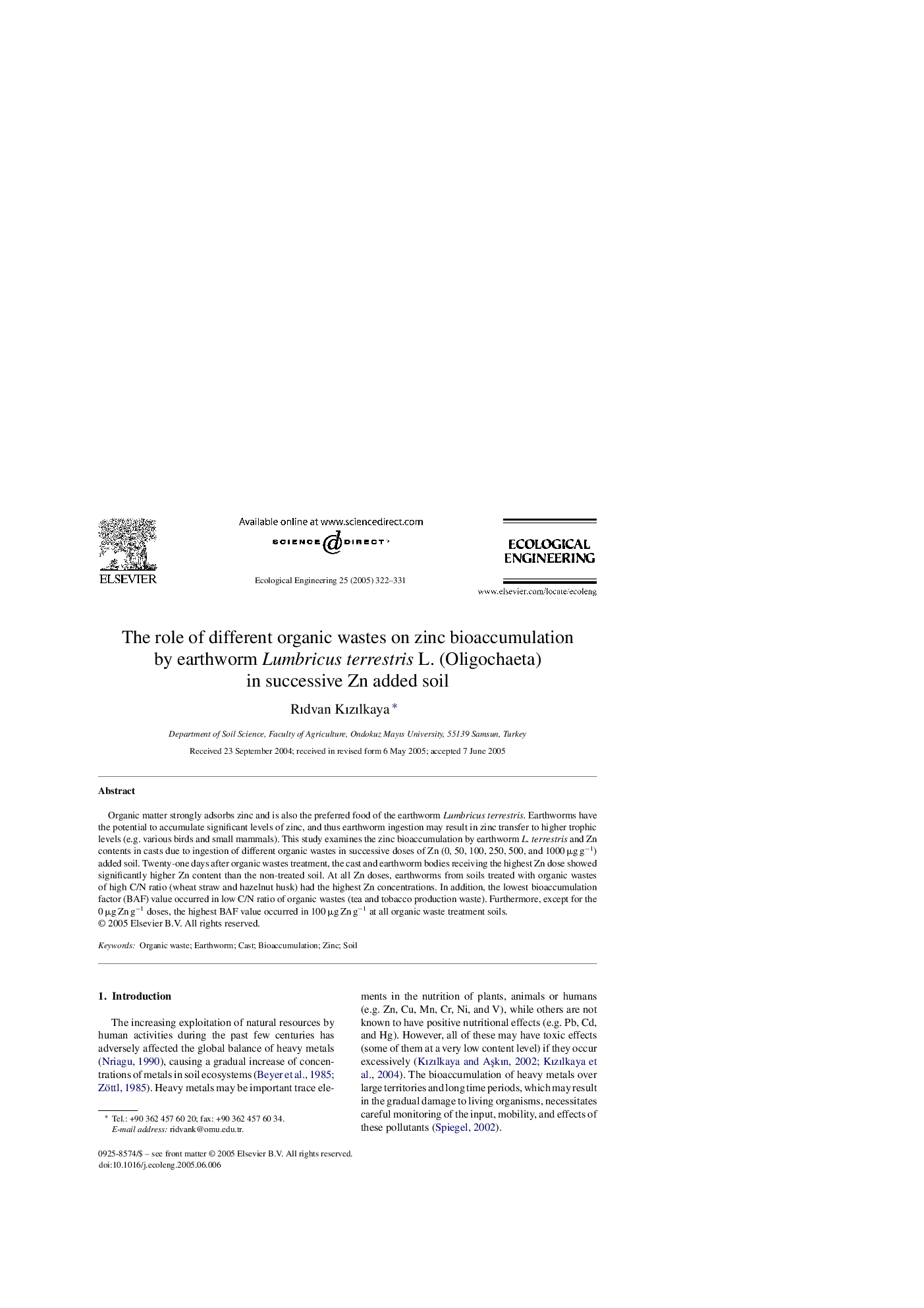| Article ID | Journal | Published Year | Pages | File Type |
|---|---|---|---|---|
| 9447558 | Ecological Engineering | 2005 | 10 Pages |
Abstract
Organic matter strongly adsorbs zinc and is also the preferred food of the earthworm Lumbricus terrestris. Earthworms have the potential to accumulate significant levels of zinc, and thus earthworm ingestion may result in zinc transfer to higher trophic levels (e.g. various birds and small mammals). This study examines the zinc bioaccumulation by earthworm L. terrestris and Zn contents in casts due to ingestion of different organic wastes in successive doses of Zn (0, 50, 100, 250, 500, and 1000 μg gâ1) added soil. Twenty-one days after organic wastes treatment, the cast and earthworm bodies receiving the highest Zn dose showed significantly higher Zn content than the non-treated soil. At all Zn doses, earthworms from soils treated with organic wastes of high C/N ratio (wheat straw and hazelnut husk) had the highest Zn concentrations. In addition, the lowest bioaccumulation factor (BAF) value occurred in low C/N ratio of organic wastes (tea and tobacco production waste). Furthermore, except for the 0 μg Zn gâ1 doses, the highest BAF value occurred in 100 μg Zn gâ1 at all organic waste treatment soils.
Related Topics
Life Sciences
Agricultural and Biological Sciences
Ecology, Evolution, Behavior and Systematics
Authors
Rıdvan Kızılkaya,
